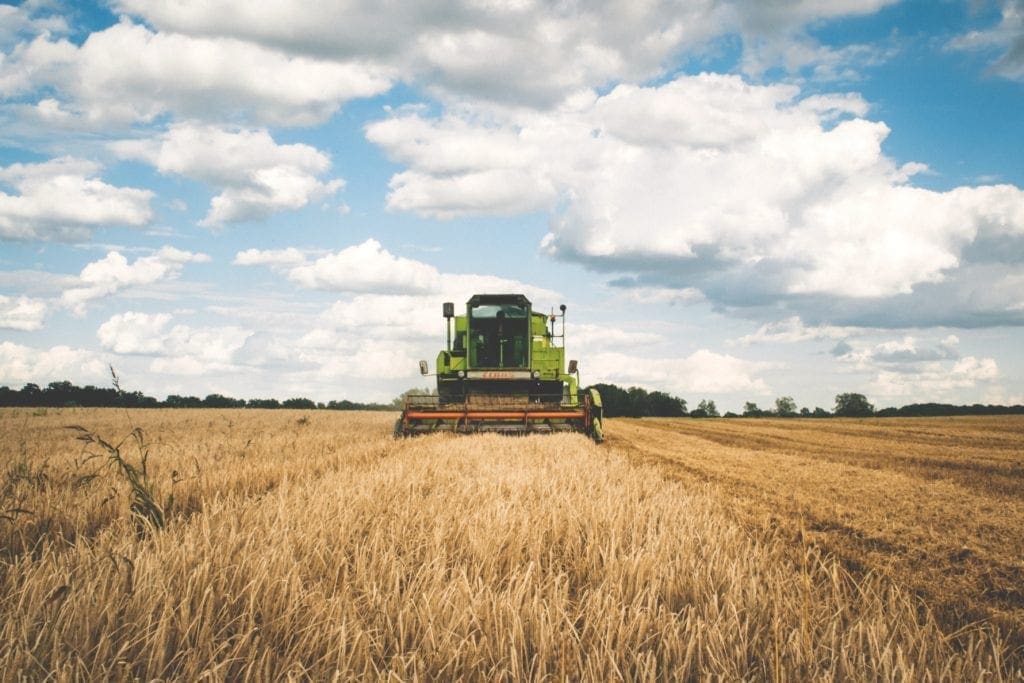American farmers are up to their necks in debt.
Agriculture Secretary Sonny Perdue revealed that debt among American farmers has increased to $409 billion. According to a Reuters report, these numbers are up from $385 billion last year. These levels of farm debt have not been seen since the 1980s.

In a testimony to the House Agriculture Committee, Perdue gave a more detailed overview of the situation:
“Farm debt has been rising more rapidly over the last five years, increasing by 30% since 2013 – up from $315 billion to $409 billion, according to USDA data, and up from $385 billion in just the last year – to levels seen in the 1980s.”
The macrotrends have not looked good for the agricultural sector during the past five years. Deflationary trends in commodity prices, storms causing damage crops, and the present trade war with China have pummeled the U.S. agricultural sector.
Luis Ribera, an agricultural economist at Texas A&M University breaks down the current problems U.S. agriculture is facing:
“As producers are not able to cover year to year expenses with operating loans, they are forced into transforming operating loans into term debt which erodes their creditworthiness.”
Ribera continued:
“On top of all that then we have the trade war which reduces the demand of US commodities given that tariffs make them more expensive and then depress the prices even more.”
Traditionally, China has bought significant amounts of corn, soybeans, and other agricultural products for the past few decades. However, Trump’s protectionist policies have spurred Beijing to respond with their own tariffs on American products. As a result, trade between the two countries has declined.
Robert Johansson, the chief economist of the U.S. Department of Agriculture, contends that farm exports are projected to fall by about $1.9 billion due to the trade dispute.
When it comes to tariffs, somethings never change.
Punitive tariffs are not conducive to a peaceful foreign policy. The trade wars preceding World War II should make the U.S. weary about continuing a trade war with China. When the Smoot-Hawley tariff was enacted in 1930 in response to the Stock Market crash of 1929, it raised tariffs on over 20,000 goods and created a domino effect of protectionism across the globe. As a result, world trade declined by about 66 percent between 1929 and 1934.
In this trade war context, many governments became more militaristic and belligerent, as social cooperation between nations deteriorates. No matter how protectionists spin it, tariffs are always passed on to consumers and create enmity between nations as we see with current the tensions between China and the U.S.
Additionally, the relationship the U.S. government has had with the agriculture industry has not been so great either. In fact, it’s one filled with cronyism.
Certain sectors are subsidized to the tune of billions. From 1995 to 2017, the wheat industry has received $45.9 billion in subsidies, while the corn industry collected a cool $111.2 billion in subsidies during this same period.
All these subsidies considered, it’s become clear that U.S. agriculture is starting to receive rewards based on political favoritism rather than entrepreneurial prowess. Subsidization enables rent-seeking and bad practices which may encourage excessive debt accumulation.
When industries are already subsidized by the billions, they can expect a bailout once their businesses sink. Like clockwork, the Trump administration responded to its misguided trade war by giving American farmers $12 billion in bailout funds.
Even with Trump’s farm bailout, farmers are still heavily indebted and on the verge of bankruptcy. The number of farmers going bankrupt has skyrocketed to the highest levels in a decade. As farmers become more indebted, these numbers will only rise into the 2020s.
This farm dilemma is a textbook example a never-ending cycle of statism we currently live in. First, the government tries to coddle the farm industry with subsidies and then tries to protect it even further with tariffs, paying no regard to the unintended consequences. Once the unintended consequences set in, there will be even more calls for government intervention. Simply put, there are no magical government hacks to solve this problem.
As Winston Churchill famously said, “We contend that for a nation to try to tax itself into prosperity is like a man standing in a bucket and trying to lift himself up by the handle.”
This same logic should also apply to tariffs and subsidies.
To get America’s farm industry back on its feet it will need to truly embrace free markets on all fronts. That means ending the trade war with China and also putting a stop to subsidies that encourage bad behavior and other forms of economic malinvestment.
The U.S. farm sector is desperately in need of a free market detox.

























